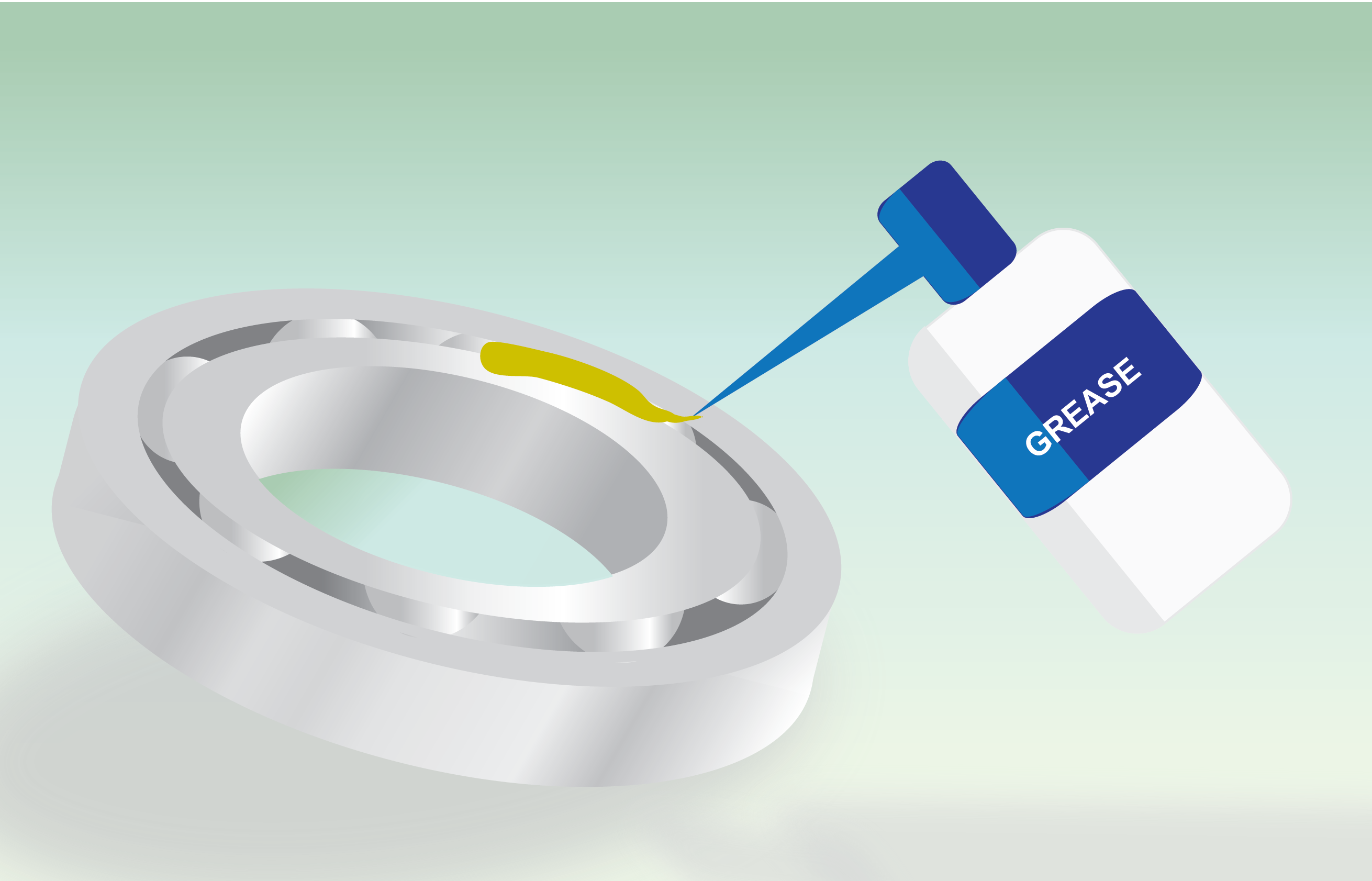Improper lubrication is the largest cause of premature bearing failure, and even the very best bearing succumbs to the inevitable consequence when it is lubricated incorrectly. Grease is considered to be the fundamental component of the bearing, housing and sealing, therefore choosing the right bearing grease is an essential step to ensure high reliability and optimum operating life.
Grease is basically a type of oil mixed with a thickening agent, creating a more viscous form so that they remain in place in the bearing and do not leak out. Grease is used mostly in heavy load application and one of the main advantages of it is to provide constant lubrication over long period without monitoring or maintenance.
While the chemical composition of grease should be considered when it comes to selecting the right grease, it is not the only factor in determining the quality of grease.
Bearing grease selection
Bearing greases help to ensure smooth operation and maximize reliability even under the most extreme conditions. They help prevent contamination and friction of the bearing, cushion any shock loads and protect against corrosion. It is not one size fits all; the selection of the right grease depends on the type of application performed and critical to bearing performance and achieving the optimal bearing life expectancy.
There are a few factors that contribute to proper lubrication, such as viscosity, temperature as well as the re-lubrication intervals.
1. Viscosity
Viscosity is one of the most important properties of lubricant. It is what determines thickness of lubricating film will be based upon the load, speed and surfaces in contact. In other words, the viscosity level of grease depends on the speed and load of bearings. When the bearing speed increases, the viscosity must be reduced accordingly.
Excessive viscosity can lead to excess heat generation and increased energy consumption. Both of these are detrimental to the health of the bearing and the grease. The hotter the bearing runs, the lower the viscosity of the grease becomes and this cause the grease to be used up and require more frequent applications of fresh grease. When the grease is completely run out, this will then cause early bearing failure.
2. Temperature
Depending on the type of grease used, they all have different temperature operating condition. However in general, when the grease is used in a temperature that is below its threshold, it will face "starvation", whereby the grease becomes too dry and cause insufficient oil bleeding. Another encounter is increased shear strength, whereby the grease becomes too stiff that it fails to protect the bearing.
When grease is exposed to high temperature that is above its threshold, they will experience "degradation". This process results in fast oil bleeding, increased oxidation and increased evaporation, in which all are unfavorable outcomes that will cause decreased stiffness to the grease where it will then become too soft to perform well.
3. Re-lubrication intervals
It is important to note that applying the correct quantity of grease at the right intervals is of equal importance. Over and under greasing as well as inadequate lubrication methods can shorten the bearing’s service life.
Over-greasing
Applying too much grease can lead to abnormally high operating temperature and has the high probability of risk to heat-build up. The free space inside a bearing is essential in allowing the heat to radiate away from contact area between balls and raceway. As a result, too much grease can lead to damaged seals and premature bearing failure.
Under-greasing
On the other hand, using too little grease may also affect the life of your bearing. Applying lower than the recommended amount of grease may increase temperatures and metal contact, damaging the bearing through extreme wear. Spikes in noise levels and higher than normal temperature readings are good indications of having under-greased your bearing, and could lead to bearing failure.
While selecting the right grease is crucial to the premature bearing failure, the improper technique while handling grease guns is also a factor that can contribute to early breakdowns and often overlooked. Learn how to make the best use of your grease gun to maximize your bearings performance.
We have experienced engineers who can provide you with the right lubrication method and solution for your specific industry needs. Book a consultation with one of our engineers now.
SLS has a wide range of grease products that facilitates proper grease supply to your application. Applying the right lubrication method to your application is important to the success of your bearing performance.








